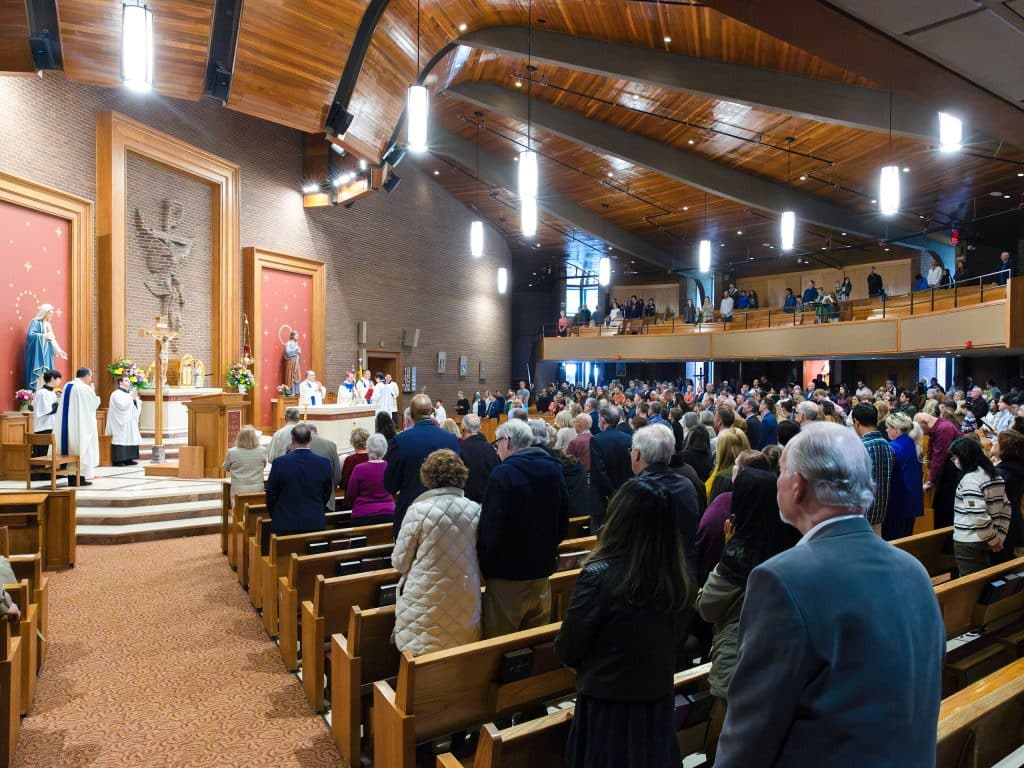Is there a literal hell?
Q. What is the Catholic view on whether there is an actual, literal hell? A lot of people, including some who are Catholics, while they believe in an actual, literal heaven, say that hell is simply death. (Indiana)
A. Catholic theology holds that there is an actual, literal hell.
The Catechism of the Catholic Church states: “The teaching of the church affirms the existence of hell and its eternity. Immediately after death the souls of those who die in a state of mortal sin descend into hell, where they suffer the punishments of hell, ‘eternal fire'” (No. 1035). That same section goes on to explain that “the chief punishment of hell is eternal separation from God.”
The teaching from the catechism is based on a host of scriptural passages: In Matthew 25:41-46, for example, at the judgment, Jesus says to the accursed, “Depart from me … into the eternal fire prepared for the devil and his angels,” and in Mark 9:48, Jesus describes hell as a place where the “worm does not die and the fire is not quenched.”
Some of the blessed have had visions of hell; St. Faustina Kowalska described it as “a place of great torture” where there is a “perpetual remorse of conscience” and a “fire that will penetrate the soul without destroying it … a terrible suffering since it is a purely spiritual fire, lit by God’s anger.”
We don’t know the exact nature of that eternal punishment. Are the “flames of fire” to be taken physically, as we on earth know fire?
I’m not really sure; I think it’s possible that the inspired authors simply used the most painful things they could imagine to describe what is ultimately indescribable — the absence of God and the presence of eternal torment.
Do only Catholics go to purgatory?
Q. I live in an area where there are many other Christian churches. When I attend funerals of friends who belonged to these churches, those funerals are called “Celebrations of Life.”
I understand that these denominations do not believe in purgatory and say that the person “has gone to be with the Lord.” So my question is this: Are Catholics the only ones who go to purgatory, while the others go straight to heaven? (Oneonta, N.Y.)
A. To answer your question directly — no, I don’t believe that only Catholics go to purgatory. Purgatory is the name we give to the final purification of the elect to make them ready for the glory of God’s presence. I suspect that a lot of us will need that last cleansing, and not just Catholics.
That belief of the church is reflected in the Catechism of the Catholic Church, which says: “All who die in God’s grace and friendship, but still imperfectly purified, are indeed assured of their eternal salvation; but after death they undergo purification, so as to achieve the holiness necessary to enter the joy of heaven. The church gives the name purgatory to this final purification of the elect” (No. 1030-31).
The church’s belief is based on a number of scriptural passages, going all the way back to the Old Testament. In the Second Book of Maccabees (12:46) we read that Judas Maccabeus “made atonement for the dead,” that they might be freed from sin — which suggests a Jewish practice of offering prayers to cleanse the souls of the departed.
In the New Testament, Matthew’s Gospel (12:32) has Jesus saying that certain sins “will not be forgiven, either in this age or in the age to come,” an indication that some purging of the soul may need to occur following a person’s death.
Why did Jesus say ‘tell no one?’
Q. One thing in the Gospels about which I’ve always been curious is why, after casting out a demon or performing some other miracle, Jesus would often command that witnesses “tell no one.” Wouldn’t a wider knowledge of these miracles have helped his ministry? (Indiana)
A. You are correct in observing that often Jesus would ask observers to keep his miracles secret. Examples abound. In Matthew’s Gospel we are told that many people followed Christ and he “cured them all” but “warned them not to make him known” (12:15).
In Mark, we learn that “he had cured many and, as a result, those who had diseases were pressing upon him to touch him” but that “he warned them sternly not to make him known” (3:10, 12); and in Luke, we read that, after he had raised the daughter of Jairus from the dead, “her parents were astounded, and he instructed them to tell no one what had happened” (8:56).
The fundamental reason for Jesus’ reluctance to spread news of his miracles, I believe, was this: Jesus did not want people to be distracted from what he really came to do — namely, the ministry of the word.
In Mark, Jesus had told his disciples, “Let us go on to the nearby villages that I may preach there also. For this purpose have I come” (1:38). His concern was that the crowds would be dazzled by the miracles rather than give their attention to the lessons he had come to teach.
Duty of fraternal correction
Q. Is it not our duty to point out when a friend is committing a sin? Otherwise, if we don’t try to save the soul of a sinner, then we too can be found guilty. But even beyond that, I don’t want to see someone risk not being with God throughout eternity because of my failure to point out his error.
My friends and I were discussing this over dinner the other night, and their view was that it is none of our business and, if a person claims to be a Christian, they should already know that what they’re doing is wrong. (Virginia Beach, Va.)
A. I am on your side of this argument, and I would take issue with your dinner friends. I would quote to them Matthew’s Gospel, which in the New American Bible reads: “If your brother sins (against you), go and tell him his fault between you and him alone. If he listens to you, you have won over your brother” (18:15).
Though the phrase “against you” might be taken to limit the sin in question to a personal offense, it is important to note that the common interpretation of Catholic theologians extends the meaning to whatever serious offense comes to a person’s notice — and also that the phrase “against you” does not appear in some of the earlier scriptural codices.
Note also that St. Paul comments on the duty of fraternal correction in Galatians, where he says that “if a person is caught in some transgression, you who are spiritual should correct that one in a gentle spirit” (6:1).
I remember, though, reading what St. Anthony Mary Claret said were the circumstances that warranted fraternal correction; not only, he said, must it have been a grave offense, but there must be a reasonable hope that the person will accept the correction.



The Good Shepherd